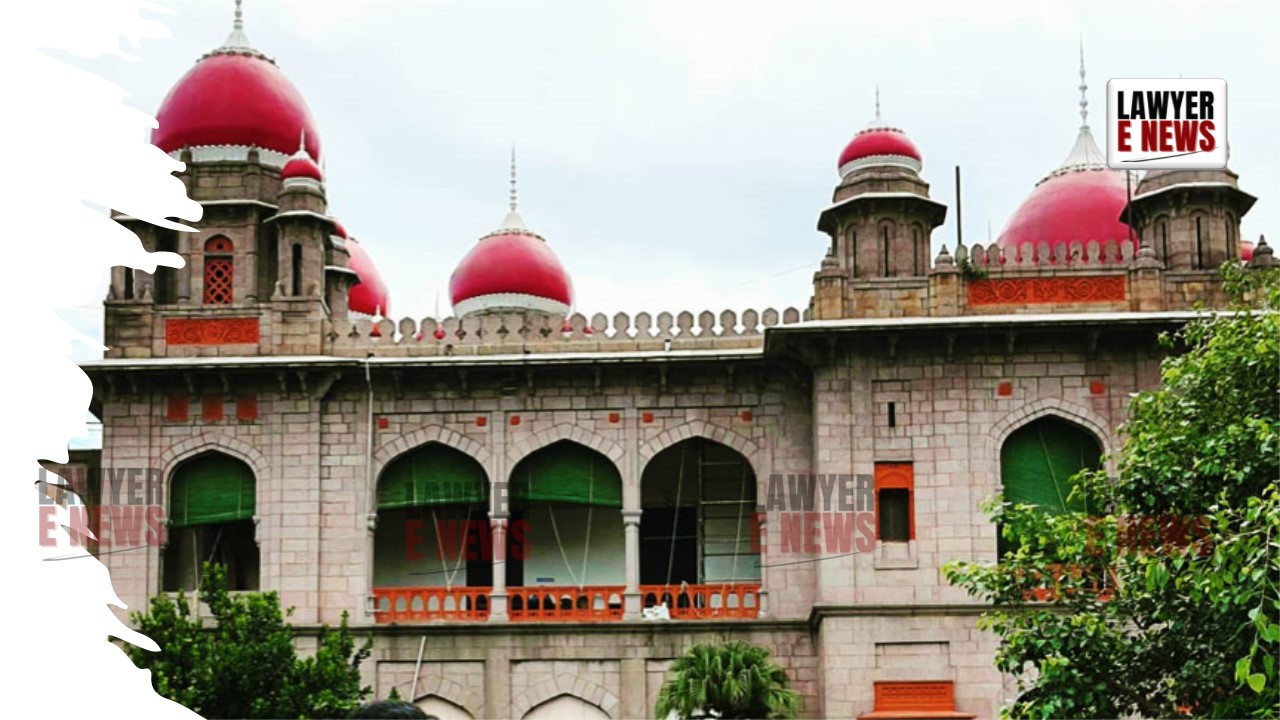-
by Admin
15 February 2026 5:35 AM



Telangana High Court upheld the dismissal of a partition suit filed by M. Prema Latha. The court ruled that the plaintiff was not entitled to a share in her late father's property, as she had already acknowledged the existence of a valid Will and had accepted compensation in 2005. The plaintiff's failure to challenge the Will or the development agreement over two decades was seen as her tacit consent, disqualifying her from later seeking a share.
Prema Latha, the daughter of Jaligama Balaiah, filed a partition suit against her brothers, seeking her share in a property located in Himayathnagar, Hyderabad. She claimed a 1/6th share in the property, which had been divided among her four brothers based on a 1997 Will. The trial court dismissed the suit, leading to this appeal.
Plaintiff's Consent and Will Acknowledgment: The court noted that Prema Latha had signed the development agreement in 2005, acknowledging the Will that divided the property among her brothers and excluded her. The plaintiff also admitted to receiving compensation, which implied relinquishment of her rights.
Failure to Challenge Will and Development Agreement: The court emphasized that Prema Latha neither challenged the Will nor the development agreement for over 20 years. Her inaction and acceptance of compensation indicated her consent to the arrangement.
Lack of Evidence for Fraud or Forgery: The plaintiff argued that the first three pages of the Will were forged. However, she provided no evidence to substantiate this claim, and the court found the Will to be valid.
The Telangana High Court dismissed the appeal, affirming the trial court's decision that Prema Latha had no claim to the property. The court ruled that her actions and inaction over the years amounted to her relinquishment of any property rights.
This ruling underscores the importance of timely action and clear challenges when disputing Wills or property arrangements. It also highlights that accepting compensation can imply consent to relinquishing property rights, making later claims invalid.
Date of Decision: October 3, 2024
M. Prema Latha v. Jaligama Prakash & Others.
